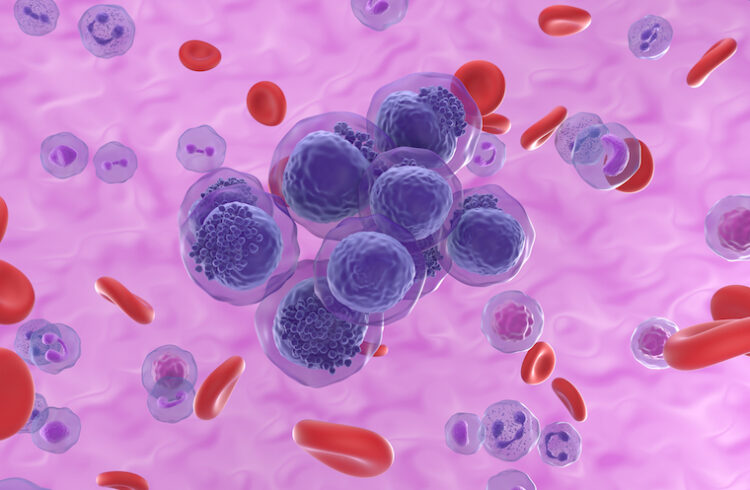
High blood pressure affects more than 1.3 billion people around the world. Long-term management of the condition with renin–angiotensin system inhibitors can cause kidney damage for some patients, and a new School of Medicine discovery explains why.
School of Medicine researchers have discovered how long-term treatment of high blood pressure with commonly prescribed drugs can destroy the kidney’s ability to filter and purify blood. The finding could open the door to better ways to manage high blood pressure and other vascular diseases.
The class of drugs, known as renin–angiotensin system (RAS) inhibitors, block the effects of the renin enzyme, relaxing blood vessels and allowing blood to flow more easily. They are widely used as first-line medications for hypertension (high blood pressure). But long-term use, for some patients, can take a terrible toll on the kidney, causing scarring and other dramatic physical changes that shift the organ’s focus from blood filtration to producing renin.
No longer able to clean the blood of impurities, the kidney becomes a “pathological neuro-immune endocrine organ,” as the UVA researchers describe it in a new scientific paper, that can cause serious health problems. But they say their discovery sets the stage for identifying ways to protect the kidney and better treat hypertension.
“The most commonly used and believed-to-be safe blood pressure medications may be damaging the kidneys,” said researcher R. Ariel Gomez, MD, of UVA’s Child Health Research Center. “We need to accurately understand the effects of long-term use of RAS inhibitors on the kidneys.”
Managing High Blood Pressure
High blood pressure affects more than 1.3 billion people around the world. The condition forces the heart to work too hard and can cause a host of other serious medical problems, such as stroke, myocardial infarction, kidney damage and vision loss.
The renin-angiotensin system (RAS) plays a crucial role in regulating blood pressure. Renin is a hormone enzyme that is produced by cells in the kidney which are stimulated when blood pressure drops.
RAS inhibitors are widely and effectively used for managing high blood pressure. They are quite safe when their use is supervised by a physician, but patients are routinely cautioned to contact their doctors if they notice signs of potential kidney damage such as reduced frequency of urination, swelling in the legs or feet or seizures. (It's important for patients to continue taking the drugs while more research is done, as the drugs' benefits are well-documented and far reaching -- and vital for patients' blood pressure control.)
The potential effects of chronic inhibition of RAS on the kidney are well known, but experts have been uncertain what causes these harmful changes. UVA’s new discovery, based on research done with rodents, offers answers: Excessive stimulation of renin-producing cells in the kidney causes the cells to revert to an invasive, embryonic state. In this state, these cells that line the tiny arteries in the kidney begin to grow too large. They start to secrete renin and substances that trigger other changes: New nerves grow like weeds; immature smooth muscle cells build up; scars form around the tiny blood vessels, called arterioles; and inflammatory cells infiltrate. The end result is “silent but serious” vascular disease, the researchers note in their new paper.
“Our 3D imaging clearly revealed that long-term RAS inhibition leads to hyperinnervation of renal arteries, together with arteriolar hypertrophy and immune inflammatory cell infiltration,” said researcher Manako Yamaguchi, PhD. “This neuro-immune-endocrine cooperation synergistically promotes increased production of renin to maintain blood pressure homeostasis, but, on the other hand, severe arteriolar hypertrophy reduces the blood filtration function of the kidney.”
By understanding what is causing the harmful changes in the kidney, scientists are now positioned to find ways to stop it. That could lead to better ways to treat high blood pressure without unwanted side effects, the researchers hope.
“Our next goal is to elucidate the whole picture of the interactions between renin cells, smooth muscle cells, nerves and inflammatory cells under RAS inhibition,” said researcher Maria Luisa S. Sequeira-Lopez, MD. “These findings may open new avenues for the prevention of adverse effects when treating hypertension.”
Kidney Damage Findings Published
The article outlining the discovery is being featured as the cover story of the scientific journal Circulation Research. The UVA research team consisted of Yamaguchi, Lucas Ferreira de Almeida, Hiroki Yamaguchi, Xiuyin Liang, Jason P. Smith, Silvia Medrano, Sequeira Lopezand Gomez.
The research was supported by the National Institutes of Health, grants R01HL148044, R01DK116718, P50DK 096373 and P50DK096373. The scientists have no financial interest in the work.
To keep up with the latest medical discoveries from UVA, subscribe to the Making of Medicine blog.
MORE: Scientists discover important blood pressure-control "switch."



